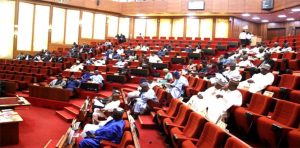Overview of the Senate Session
On Wednesday, the Nigerian Senate convened an emergency session to address a heated debate regarding the financial autonomy granted to the 774 Local Government Councils by the Supreme Court in August. This session unfolded amid allegations that certain state governments were attempting to bypass the Supreme Court’s ruling through the enactment of counter-laws.
Key Highlights from the Session
Motion by Senator Tony Nwoye
Senator Tony Nwoye (LP, Anambra North) initiated the discussion by citing Orders 41 and 51 of the Senate Standing Rules. He alleged that some governors were pushing legislation requiring local councils to deposit funds into a State/Local Government Joint Account, a move declared unconstitutional by the Supreme Court.
Nwoye’s motion was co-sponsored by nine other senators and outlined six requests for the enforcement of the Supreme Court’s judgement. Senator Osita Izunaso (APC, Imo West) seconded the motion, highlighting the urgency of the matter.
Constitutional Concerns Raised
In response, Senator Adamu Aliero (PDP, Kebbi Central) raised a constitutional point of order, advocating for a halt to the debate. He referenced Section 287 of the 1999 Constitution, which mandates the enforceability of Supreme Court judgements nationwide. Aliero asserted, “Supreme Court judgements are enforceable across the country. There is no need for us to be debating anything that has to do with it here.”
Support from Senate President
Senate President Godswill Akpabio supported Aliero’s position, emphasizing the need for constitutional amendments to fully implement the Supreme Court ruling. He pointed out Section 162, subsection 6 of the 1999 Constitution, which establishes the State/Local Government Joint Account. Akpabio remarked, “I think what we need to do is to carry out the required amendments to certain provisions of the Constitution as far as local government autonomy is concerned.”
Emergency Closed-Door Session
Before a resolution could be reached, Nwoye invoked Order 42 of the Senate Standing Rules for a personal explanation. Concurrently, Senator Abdulrahman Summaila Kawu (NNPP, Kano South) raised a similar point of order, creating confusion among the senators. This turmoil led to a decision for the Senate to enter an emergency closed-door session at 12:46 PM.
Conclusion
The ongoing debate over local government autonomy reflects deeper issues within Nigeria’s governance structure. The Senate’s emergency session highlights the challenges lawmakers face in reconciling state laws with Supreme Court rulings. As discussions continue, the need for constitutional amendments may pave the way for clearer enforcement of local government financial autonomy.


